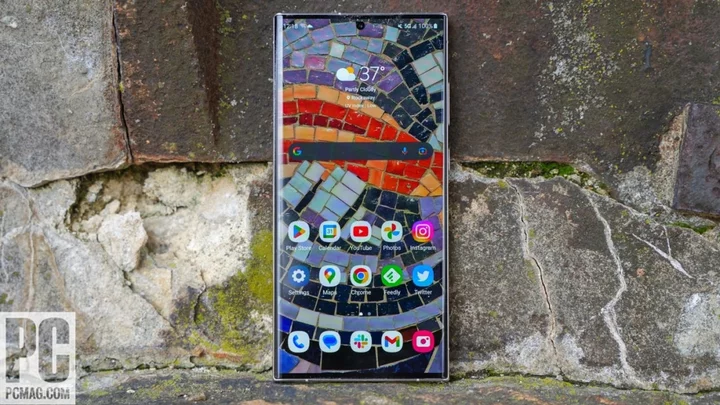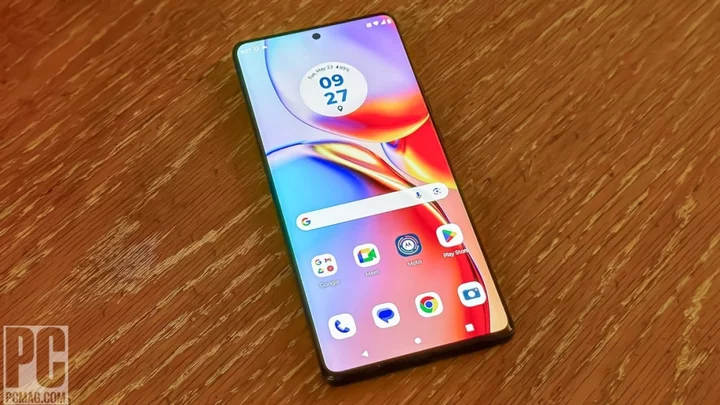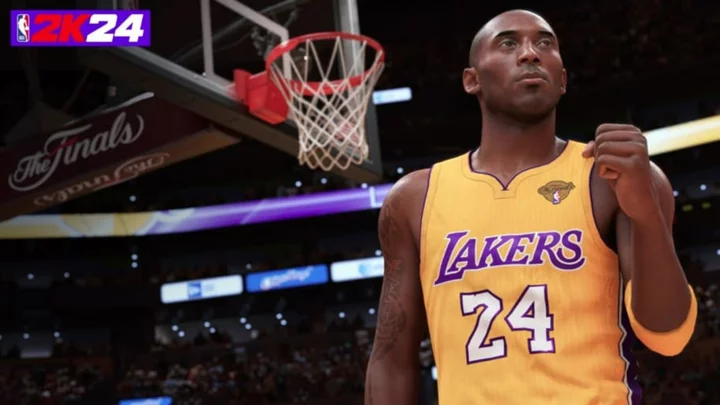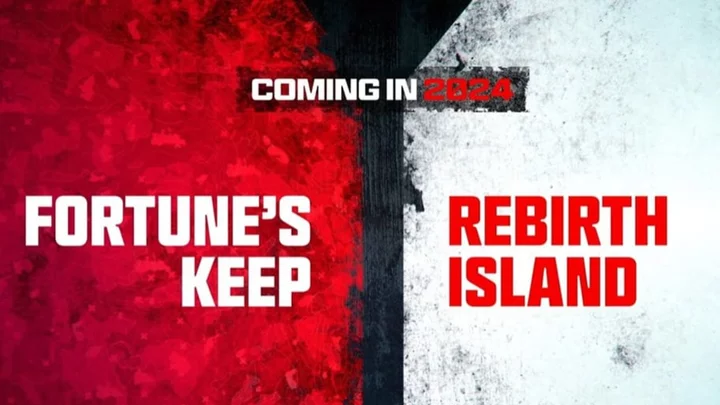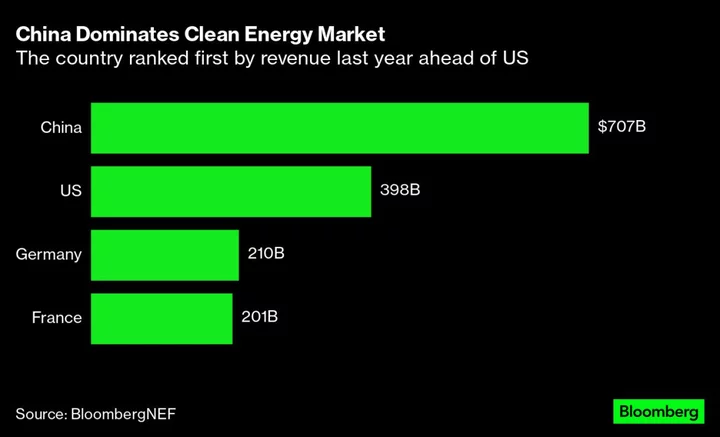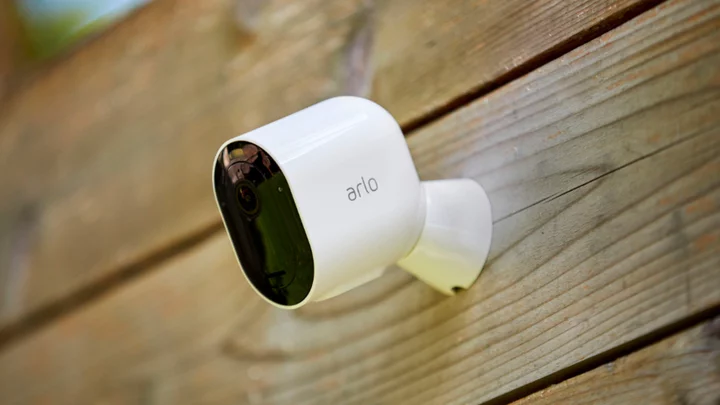For most of us, mobile phones are at the center of our universe. The typical feature set of these palm-sized marvels is astounding. It's your phone, messaging device, web browser, camera, music player, GPS, and more. The phone you choose affects your life in a multitude of ways. That's why we're here to help you pick exactly the right one.
We're a smartphone-dominated nation, with 5G now widely available across much of the land from three major, nationwide wireless carriers (Dish is also slowly building out a 5G network). But some of our choices have constricted a bit: The smartphone OS marketplace is basically down to Apple's iOS and Google's Android. It's surprisingly difficult to find a really good simple voice phone nowadays, too.
We've reviewed almost every smartphone available for AT&T, T-Mobile, and Verizon Wireless, as well as for many of their sub-brands such as Cricket, Metro, and Visible. But rather than simply choosing the phones with the highest ratings here, we aim to deliver a list of devices that covers every budget and use case. We generally focus on the hottest, newest releases, but you can also find great value in slightly older phones, so make sure to shop around. We also include some helpful buying advice below the list that can help you throughout your search.
Which Cell Phone Carrier Has the Best Coverage?
Despite all the recent hardware and mobile software innovation, choosing a wireless service provider remains the most important decision. No matter what device you buy, it's a paperweight unless you have solid wireless coverage. You should choose a carrier that offers fair prices and provides the best coverage in your area.
If you're interested in performance and you live in a metro area, pay the most attention to where carriers have "mid-band" 5G and use phones that support that technology. T-Mobile won our Best Mobile Network award in 2022 because it's far ahead of the other carriers on both counts. It has speedy mid-band in more places than the other carriers, and all its current 5G phones support mid-band.
AT&T performed best in areas away from cities and off the interstates. Verizon's C-band 5G is spreading fast: It now covers some 200 million Americans, but you need the right phone to take advantage of it.
UScellular is available only in about half the country. It has a reputation for good customer service, but we haven't been able to test it because its service is not available near where our staffers live.
The newest national carrier is Dish. We tested its network early on, but the carrier now says coverage is available for roughly 70% of the US population.
There are also plenty of virtual operators that use the big three networks for service but offer lower monthly rates, cheaper international calls, or other benefits. They're typically better for less intensive users, and most don't have family plans.
Mint Mobile (on T-Mobile's network), Consumer Cellular (on AT&T's), and Spectrum Mobile (on Verizon's) all got higher ratings in our Readers’ Choice survey than the companies that host their service.
What Is 5G?AT&T owns Cricket, T-Mobile owns Metro by T-Mobile, Verizon owns Visible, and Google owns Google Fi. Verizon now also owns Net10, Page Plus, Simple Mobile, Straight Talk, Total Wireless, and Tracfone, although it might sell off some of those brands. We spotlight some of our favorite virtual operators in our roundup of the best cheap phone plans. We also have a story on the best cheap phones.
Do You Need a 5G Phone?
5G arrived in 2019, and most new smartphones now support some form of it. Though 5G may change everything eventually, it won't happen immediately.
As noted above, our Best Mobile Networks tests for 2022 showed that T-Mobile's 5G mid-band network is making a considerable difference in performance. If you're on T-Mobile, you should use a mid-band 5G-compatible phone. That's an easy choice—all T-Mobile 5G phones are mid-band-compatible now.
AT&T has a strong 4G network and not much mid-band 5G. It has been studiously installing a new form of mid-band called 3.45GHz, but you need at least an iPhone 14, Samsung Galaxy S23, fourth-generation Samsung Galaxy foldable, or Pixel 7 model to take advantage of it. Hopefully, more upcoming phones will support this spectrum.
Apple iPhone 14 Pro MaxVerizon Wireless offers C-band 5G for more than 200 million people. If you're in one of the C-band areas, upgrading to a C-band compatible 5G phone with Verizon is a good move. Otherwise, Verizon's "nationwide" 5G is only slightly faster than LTE, and you don't need to concern yourself with it too much. You can find more 5G recommendations on our list of the best 5G phones.
(One note: you may see a "5G E" icon on your existing AT&T phone. That isn't 5G; it is a marketing ploy. Your phone is still running on LTE 4G. Look for the 5G+ icon instead.)
Should You Get an Unlocked Phone?
Carriers have moved to increasingly more confusing service and pricing plans, so the value of unlocked phones has risen accordingly.
Unlocked phones are those you buy from a third-party store or directly from the manufacturer; they aren't tied to a specific carrier. Usually, you can use them with AT&T or T-Mobile. But some popular unlocked phones work on all three major carriers, including Verizon. For the most flexibility, look for a recent Apple iPhone, Google Pixel, Samsung Galaxy S flagship, or Motorola phone. If you use a low-cost MVNO service, make sure your unlocked phone works on its network; we've received several emails stating that some MVNOs don't support phones that should work on their networks.
In the past, unlocked 4G phones typically worked on all the major carriers, but 5G phones are different. Apple, Google, and Samsung's 5G phones work on every major US carrier, but many other brands either have limited band support or are only certified for specific carriers. AT&T customers should take extra caution before buying an unlocked 5G phone because the carrier has not yet certified many of the phones its network theoretically supports.
What Is the Best Smartphone?
As more people become accustomed to instant email, web, music, and messaging access at all times of the day, regardless of where they are, smartphones have become almost indispensable. But that doesn't mean everyone wants the same mobile experience. Sometimes, a platform's user interface or app selection speaks to you, and that's all there is to it. With that in mind, and at the risk of attracting flames, let's break it down as well as we can for those who aren't so fully vested.
There's actually less diversity in smartphone platforms and designs than ever. Android and iOS are the two remaining major smartphone platforms, both in US sales and in the availability of third-party apps. The iPhone has the best app store and the best media features. But Apple's tightly controlled ecosystem can feel stifling to some, and iOS isn't easy to customize or modify. There's far more variety among Android handsets, and Android's open-source nature makes it a tweaker's dream. But it also means fragmented third-party app compatibility, occasional bugs, carrier bloatware you can't remove, and less consistent OS updates.
Google Pixel 7Strictly interested in Android? Head over to our roundup of the best Android phones. Baffled by the variety of iPhones? Here's how to decide which iPhone to buy. And if you want to document the world around you with your phone, we've rounded up the best camera phones, too.
What Is the Best Feature Phone?
Some people still use simpler phones, even though the number of choices is steadily dwindling. The top reasons to consider these models are their lower price, ease of use, and often cheaper associated service plans (because mobile data isn't a factor). There are some great deals for voice-only plans on virtual carriers such as TracFone and Consumer Cellular.
Unlike smartphones, feature phones are a matter of "what you see is what you get." They don't receive software upgrades or run thousands of additional apps. For voice quality, read our feature on how to make your cell phone calls sound better. Wireless network coverage is always the biggest factor, but individual phones can vary in reception, earpiece quality, transmission quality through the microphone, and sidetone (the echo of your voice that helps prevent you from yelling at the other person on the line). A phone with middling to poor reception quality can be almost impossible to use in a marginal coverage area. In contrast, one with excellent reception can make the best of the little signal that's available. Another point to consider: Some phones have much louder speakerphones than others.
For more, see our picks for the best phones for seniors. We also have a roundup of the best phones for kids.
What's the Best Time to Buy a New Phone?
The best time to buy a new phone is when you need one. If your phone took a header into the pool or met its demise on the pavement, get whatever is available that best meets your needs. But if you're watching your budget or riding the cutting edge, a little knowledge and planning can keep you from buying a phone that's about to be discounted or replaced with something newer and cooler.
The pandemic and the global chipset shortage upended the usual phone release cycles for some time, but things are mostly back to normal. For instance, Apple released the iPhone 14 models in September, as it has done in the past. Google's new Pixels came out in October. And Samsung stuck with its usual schedule of Galaxy S devices in February and foldable phones in August.
Note that we update this story every time we review a new phone worth a spot on the list, so it changes often. Be sure to check back soon for our latest recommendations.

